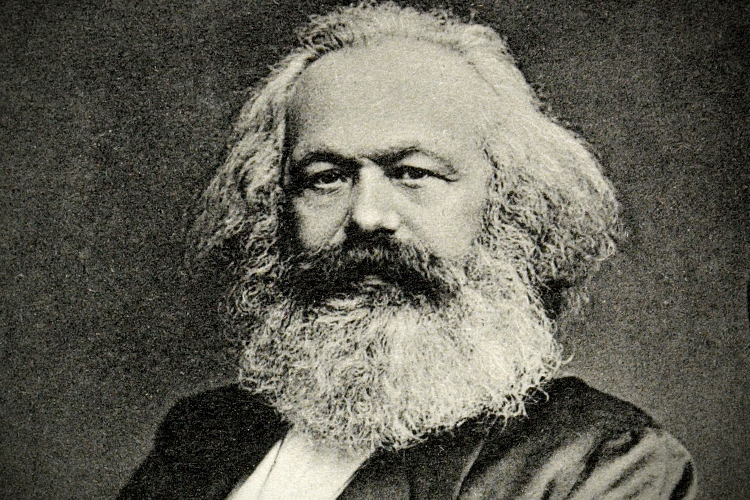WHAT IS CULTURAL MARXISM
The term Cultural Marxism, which is also known as multiculturalism (although the latter term has various meanings and implications), is a philosophy that is perhaps as old as 1919. According to William S. Lind, Cultural Marxism came into thought when the classical Marxist scheme did not work in Western Civilization in the post WWI era, as predicted by classical Marxists. Two Marxist philosophers, Antonio Gramsci in Italy and Georg Lukacs in Hungary, theorized that Marxism didn’t take root in the West because “Western culture and Christianity” had buffeted the philosophy, along with the mortal enemy of Marxism – upward economic mobility. In economically free nations in which fortunes could be earned and economic classes changed in a single generation, the workers were not nearly as interested in rising up against the wealthy because they, themselves, had hope of becoming wealthy (link).
Instead of traditional economic Marxism, what was proposed and advanced in Western Civilization far more successfully was Cultural Marxism.
But, it’s impossible to understand Cultural Marxism without first understanding Economic Marxism.
ECONOMIC (OR CLASSICAL) MARXISM
Marxism is a method of sociological analyzation that seeks to understand differences in class relations. Originating with Karl Marx, the system desires to view society in different socio-economic classes, and lists conflict between the classes as the cause of all social ills. While there are divergent schools of Marxist thoughts, it’s plainest definition is:
a theory in which class struggle is a central element in the analysis of social change in Western societies, which stands in contrast to capitalism, an economic system based on the private ownership of the means of production and distribution of goods, characterized by a free competitive market and motivation by profit (link, multiple sources)
Put plainly, Marxism recognizes “class struggle” (economically so, chiefly) as the source of problems and the socialization of all property and resources as the solution to those societal problems.
Critics of Marxism argue that not only does socialization of property and resources decrease the overall wealth of a population and is unfair to those who produce wealth, but it artificially reduces people to members of a particular “class,” and seeks to cause conflict between the classes to bring about social change (IE, the “haves versus the have-nots”). The Judeo-Christian understanding of the 8th Commandment, which undergirds the notion of private property rights, is historically the reason for great resistance to socialism in the West.
THE ADVANCEMENT OF CULTURAL MARXISM IN THE WEST
To turn classical Marxism into Cultural Marxism, members of what is called “the Frankfurt School” (which included Max Horkheimer, Theodor Adorno, Wilhelm Reich, Eric Fromm and Herbert Marcuse) argued that culture was not a part of Marx’s original idea regarding society’s “superstructure,” and was an important variable in the over-all Marxist experiment. They argued that the working class would not revolt against the “bourgeoisie” in places where the poor could become rich. So then, the Frankfurt School intellectual leader, Herbert Marcuse, argued that Marxist ideology should enlist a cultural contingent; chiefly a coalition of blacks, students, feminists and homosexuals (link).
As Lind explains…
Fatefully for America, when Hitler came to power in Germany in 1933, the Frankfurt School fled – – and reestablished itself in New York City. There, it shifted its focus from destroying traditional Western culture in Germany to destroying it in the United States. To do so, it invented “Critical Theory.” What is the theory? To criticize every traditional institution, starting with the family, brutally and unremittingly, in order to bring them down. It wrote a series of “studies in prejudice,” which said that anyone who believes in traditional Western culture is prejudiced, a “racist” or “sexist” of “fascist” – – and is also mentally ill (link)
IMPLICATIONS OF CULTURAL MARXISM ON AMERICAN CHRISTIANITY
The goal and design of Cultural Marxism was very intentionally thought-out by its intellectual progenitors in order to undermine both Western Civilization and Christianity. While Cultural Marxism may seem like a purely political ideology, like Classical Marxism, it has deep consequences for the realm of Christendom.
By viewing everything through the lens of ethnicity, Cultural Marxism is actually the enemy of true and authentic, Gospel-centered racial reconciliation, which is based upon the premise of Galatians 3:28. Cultural Marxism seeks to dis-unify, rather than unify the Church (although it is practiced under the veiled disguise of racial harmony).
It is not uncommon to hear evangelical leaders today use the term “racial justice,” a term that is steeped in (and directly derives from) Cultural Marxism. Certain evangelical leaders seeking to bring ethnic harmony to the church are actually and inadvertently falling into the century-old game plan of Cultural Marxists when they insist on seeing culture through the lens of race (and more liberal denominations may do this with gender as well, which is equally as dis-unifying).
The Evangelical Intelligentsia is especially prone to espouse Cultural Marxism, and examples of them falling for the scheme are multitudinous, as best seen in recent years in writings by both The Gospel Coalition and the Ethics and Religious Liberty Commission.











